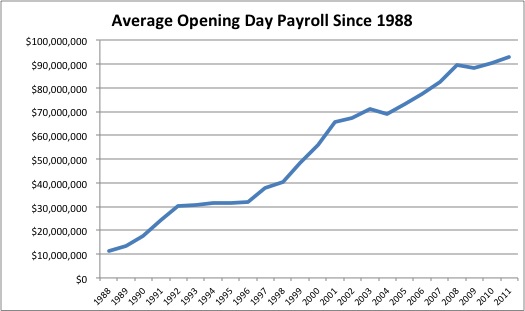How the 1994 MLB strike killed collusion
The 1994 baseball season came to a screeching halt 20 years ago today when Major League Baseball's disgruntled players walked off the job in what proved to be the longest work stoppage in league history.
Incensed by the owners' proposal to implement a salary cap and the league's dubious history of collusion, the players opted to strike, prompting a 232-day stoppage that resulted in the cancellation of the 1994 World Series and the alienation of many of the game's fans.
Major League Baseball's owners repeatedly conspired to keep player salaries low during the 1980s by refusing to make competitive offers for their services, leading to rampant distrust among players.
The players' union filed three grievances against the owners, citing a violation of the collective bargaining agreement. After receiving modest payouts from the first two grievances, the players received $280 million in damages from the owners in 1990, intensifying a bitter relationship between the two parties, according to former commissioner Fay Vincent:
"The Union basically doesn't trust the Ownership because collusion was a $280 million theft by (acting commissioner Bud) Selig and (Chicago White Sox owner Jerry) Reinsdorf of that money from the players. I mean, they rigged the signing of free agents. They got caught. They paid $280 million to the players. And I think that’s polluted labor relations in baseball ever since it happened."
When revenue-sharing was first introduced in 1996, however, increased efforts towards competitive balance caused economic trends in baseball to change, a development aided by the substantial increase in revenue from national television contracts.
As small-market teams found themselves with more money as a result of revenue-sharing and increased centralized revenue, a corresponding spike in player salaries ensued, per Baseball Prospectus's Jay Jaffe:

Wendy Thurm of Fangraphs aptly noted last November that teams aren't obligated to use additional revenues from television contracts on player salaries, but "some teams appear to have made payroll commitments for 2014 — and beyond" knowing that additional money was coming their way.
Also, in today's economic climate, increased payroll flexibility has allowed teams to sign young players to long-term extensions early in their careers (e.g. Evan Longoria, Andrew McCutchen, Chris Sale), a trend that has diminished the number of players who reach free agency each year. The paucity of available talent on the open market has caused salaries to rise even higher, as teams eager to fortify their roster via free agency are forced to recruit from a shrinking pool of players.
Two decades after the 1994 strike, escalating salaries have all but quashed the notion of collusion in Major League Baseball (the mammoth contracts given in recent years to free agents like Albert Pujols and Prince Fielder illustrate how lucrative the open market remains), but the lengthy stoppage will forever be among the biggest blights in the history of North America's oldest professional sports league.
HEADLINES
- Beltrán will have Mets cap on HOF plaque as Jones gets Braves, Kent has Giants
- Report: D-Backs add Carlos Santana on 1-year deal
- Suárez happy with Reds reunion: 'Back where everybody knows you'
- MLB offseason: Suárez, Donovan, Arraez, other moves
- Astros, Paredes agree to 1-year, $9.35M deal to avoid arbitration